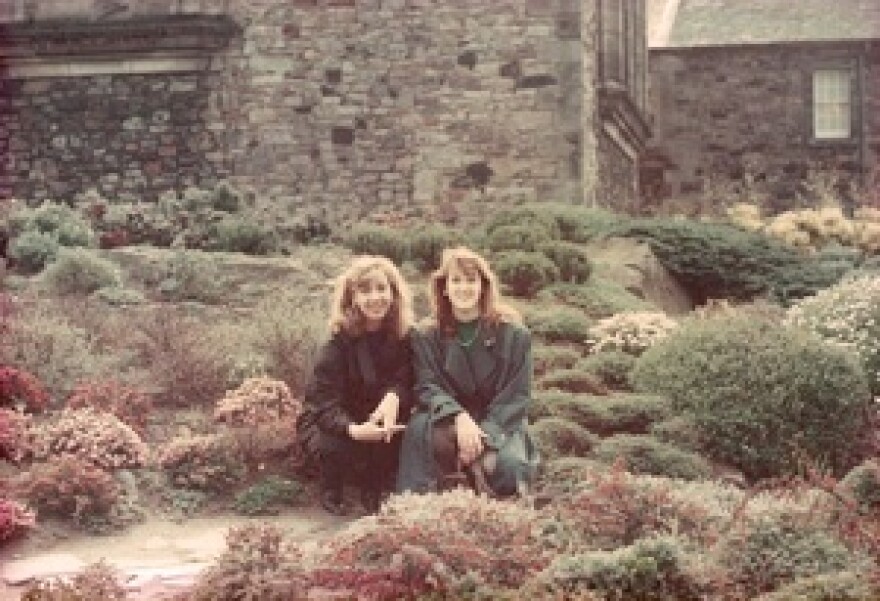Every once in a while at Think, we reschedule a guest last-minute when news breaks. Last week I called Change Of Heart author Jeanne Bishop to explain we'd have to find another time slot. Could she do Tuesday, April 7, instead? "Actually, that's 25 years to the day since my sister was murdered," Bishop told me.
Twenty-five years is also how long Jeanne's little sister Nancy was alive. A high-schooler killed her and her husband in cold blood in 1990 after they returned home from an Italian restaurant in Chicago. The couple had just announced to family that Nancy was expecting her first child.
No motive
David Biro was waiting for them to come home. He'd used a glass cutter to carve out pieces in their sliding door, quietly stacking the pieces unnoticed by neighbors. The teenager shot Richard in the head and Nancy in the belly and left them to die, taking nothing with him. There was $500 in cash on the ground when the police came.
Jeanne told host Krys Boyd about her sister's last act, one that defines her.

“About a week after the bodies were discovered, the police called us to tell us this detail – some of these details of the crime scene they were holding back, but they wanted us to know that she had dragged herself over to her husband’s body in her dying moments and written in her own blood a heart shape and the letter ‘U’ – love you – which is how she used to sign her notes to him," Jeanne said.
"And when my mother heard that news, she started to cry for the first time … she had been so numb with grief and shock that she hadn’t even been able to cry. And she said, ‘It’s true, isn’t it? Love is stronger than death.'”
Jeanne was almost consumed by anger -- at God, and not the killer. There didn't appear to be a motive, and, she said, if Biro had one, she'd spit on it anyway.
Driven to response, not revenge
"The idea that someone would look into the bright, sparkling eyes of my beautiful sister and pull a trigger and mercilessly snuff out her life was unfathomable to me," Jeanne said. "It was so dark and so evil. And I knew that evil had to be responded to in some way. It required a response. And I think I knew in that instant that it could not be to hate someone, to drag me into that darkness too."
It seems unthinkable, but Jeanne - who credits her Christian faith for the strength she had to do this - eventually wrote letters to Biro in prison, then started visiting him. She quit her job to become a public defender and argues to abolish the death penalty.
For her, justice is about getting the murderer to understand the loss. Biro told Jeanne the longer he knows her, the more remorse he has for what he did. And despite how unlikely it is for a victim's family member to go as far as she has in the name of forgiveness, Jeanne's story is a testament to the power of grief, the ways in which it gives us the need to be seen and known, and how it is like love. Neither can leave a person unchanged, and maybe it's ultimately up to us to decide how.
Listen to the full conversation with Jeanne Bishop
About Think
Think features in-depth interviews with compelling guests, covering a wide variety of topics -- from history, politics and current events to science, travel and adventure. Think airs on KERA 90.1 FM noon-2 p.m. Monday through Thursday, with repeats at 9-11 p.m. Listen to Think interviews here.





